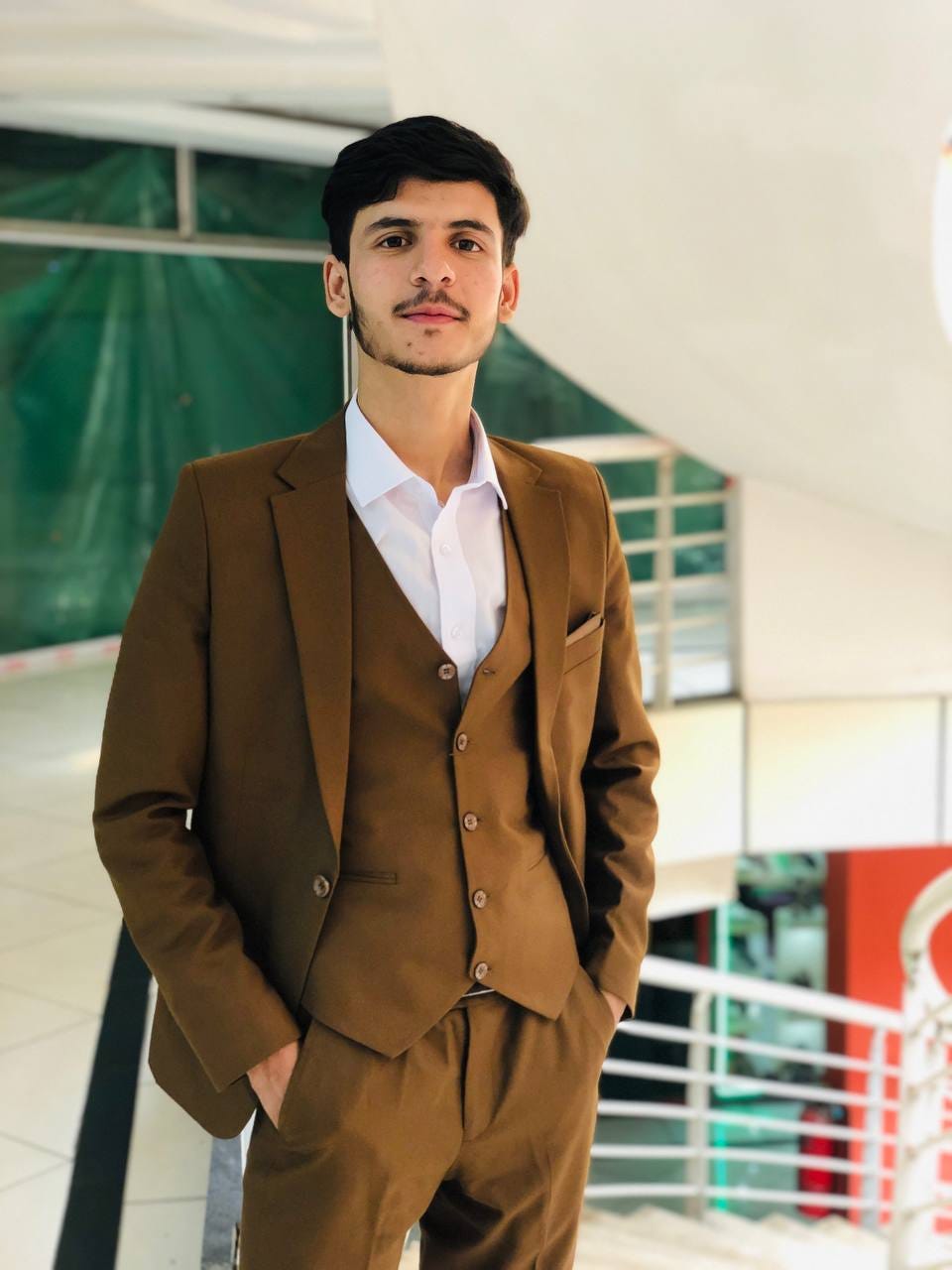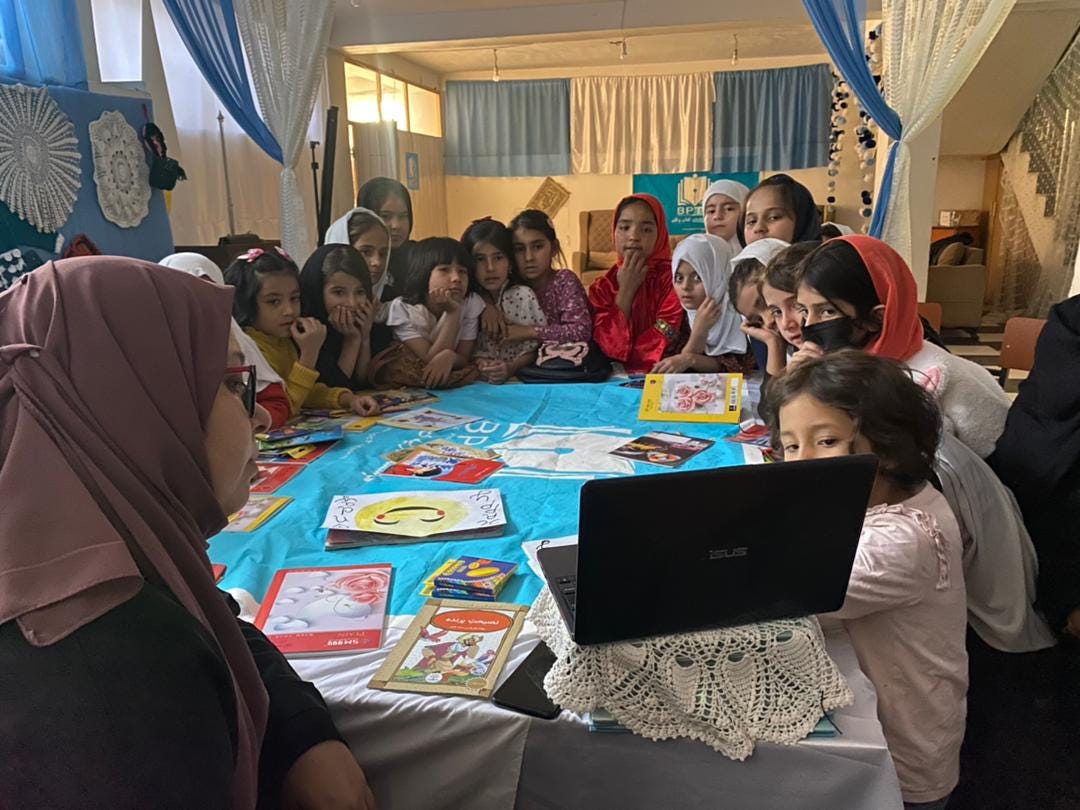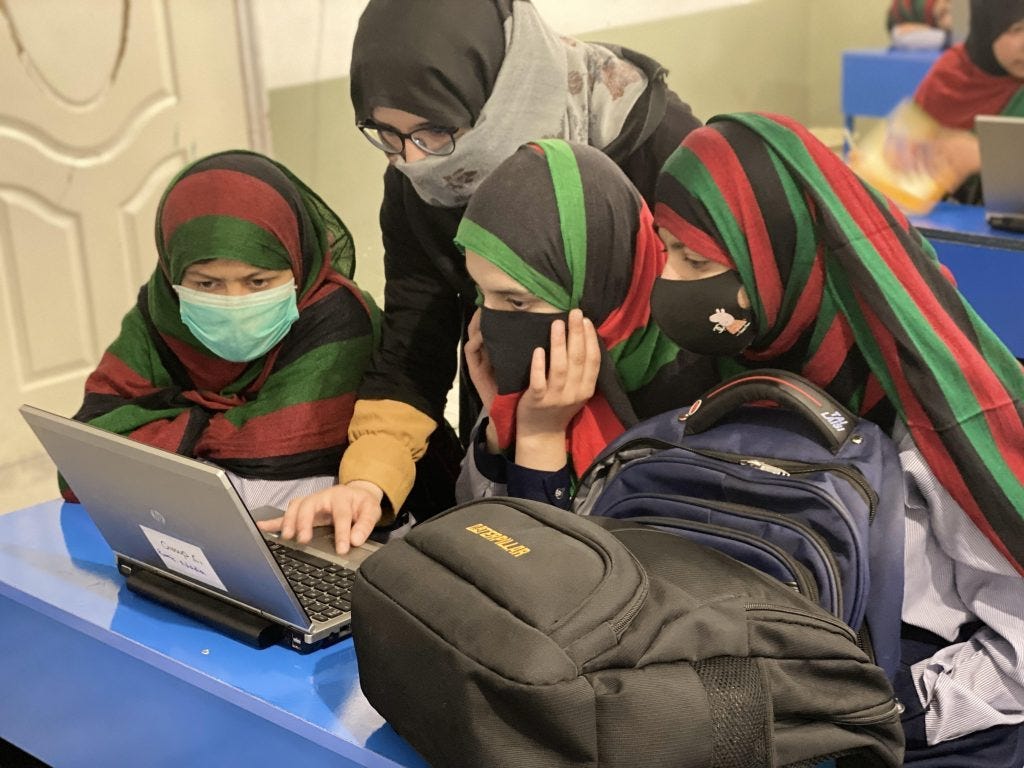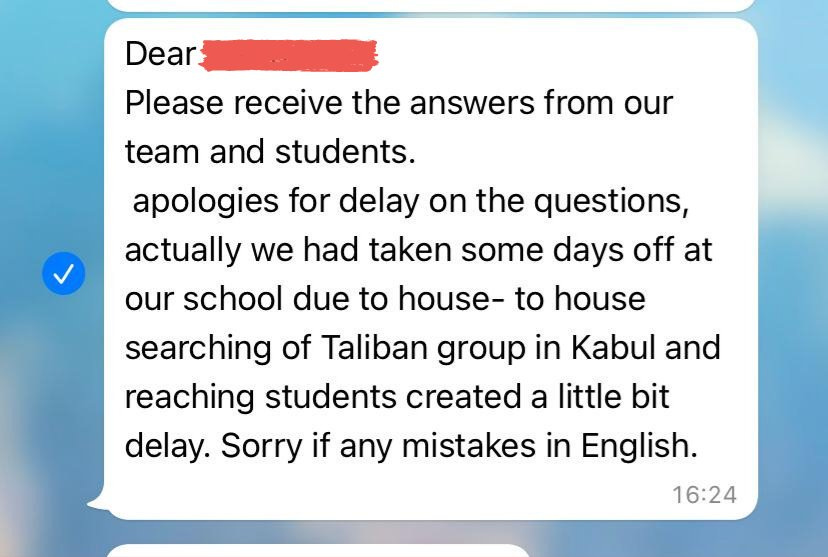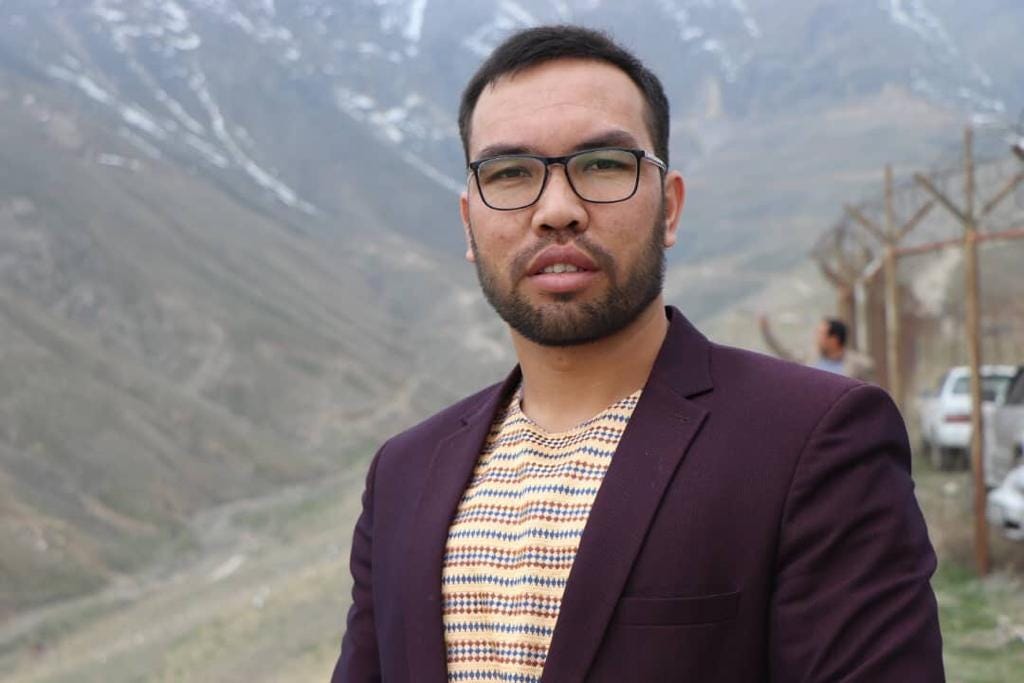Teaching Against the Odds: The Education Innovators Inspiring a New Generation of Learners in Afghanistan
A roundup of our many new partners and programs across Afghanistan, all dedicated to ensuring that everyone has access to education.
When the Taliban seized power in August 2021, a generation of young Afghans watched their futures unravel overnight. Schools were ordered to close their doors and students were sent home as Afghanistan’s new rulers determined a new direction of learning for the country’s youth. When they re-opened a month later, only boys and primary school children went back. Teenage girls were barred, and remain so, despite assurances that they would be allowed to continue their studies when the government had a suitable system in place.
Over a year later, secondary school girls are finding other ways to continue their education - in secret schools, private classrooms and online sessions, risking reprisals from Taliban officials to pursue an education at all costs, even if it’s just a piece of one. But the longer girls are kept out of school, the deeper the damage will run. As Freshta Karim, whose organization Charmaghz runs mobile libraries in Afghanistan, told IBB earlier this year: “It’s gender-based discrimination impacting girls directly, but also boys who are learning that it’s normal for girls not to attend school. This mindset may have horrific consequences for girls’ and womens’ rights for decades to come.”
Thankfully, Afghans are fighting for their right to learn and Ideas Beyond Borders is supporting them with Innovation Hub grants as they find ways to reach children and teenagers whose futures hang in the balance. Here are some of the education activists whose dedication and courage have inspired our support.
Zuhal Sherzad: Youth Capacity Building Camp
“Right now we don’t have any hope the schools will be open again, the situation is not good for girls,” says Zuhal Sherzad, 19, an international relations student at the American University of Afghanistan. When the Taliban took over, she saw it as her responsibility to help girls gain the opportunities that had been snatched from them. Working with education advisors, she created a 10-day program covering critical thinking, leadership, decision-making and other skills that are not typically taught in Afghan high schools. “Education is really important and they don’t have this right now, it’s very sorrowful,” she says. With IBB funding to host the camp, Sherzad is hoping to inspire women aged 17 to 30 to continue learning, despite the restrictions they face. “Until women are allowed to contribute the country won’t prosper and it will face a big problem in the future if they continue to be excluded from work and education,” she adds.
Sanaullah Jelani: Creative thinkers
Sanaullah Jelani, 17, is brimming with ideas to make learning engaging and will put them to the test when his organization Creative Thinkers hosts their next schools conference. Targeting students in grades one to six, the sessions are designed to strengthen the youth community by teaching self-development and social awareness skills, such as how to act in an emergency, everyday hygiene and taking care of the environment. One of the most important lessons covers traffic awareness because of the high number of traffic accidents involving children in Afghanistan. “We want to remove this problem in our community and positively impact their futures,” says Jelani. The first round of conferences will focus on four schools in the Mazar-i-Sharif District, reaching around 160 students. IBB funding will be used to hire equipment so the Creative Thinkers team, who work on a volunteer basis, can perform plays, lay on snacks and create games and animations to capture the attention of their young audiences. “We hope to make a positive difference in the daily lives of the students and teach them some of the things they are not getting in schools,” he adds.
Zainab Mohammadi: Book and Pen
“This time last year everything changed in an hour and all our dreams shattered to pieces,” says Zainab Mohammadi, who was in the fourth year of her medical degree when the Taliban swept to power last August. Horrified by the abrupt clampdown on women’s freedoms, she has worked tirelessly since to create an education center where women can continue to learn and prepare for their university entrance exams. “I saw the demotivation affecting girls since their schools closed, including my own sister who was due to start grade 12 and desperately needed to continue her education - it was painful to watch her at home every day,” she says. The Book and Pen Education Centres operate with Taliban permission, teaching girls aged 13 to 20 and women in their thirties who learn crafts to support their families. IBB is providing a grant to run the centers for the next four months, covering rent, teacher salaries, guards and equipment, including stationary and materials for vocational courses. So far, 700 students have graduated from the centers and Mohammadi hopes to help many more, working 12-hour days and weekends to take on more students and meet demand. “Looking at these girls and their enthusiasm to learn my heart melts. That’s where I get my energy from,” she says.
Pashtana Dorani: Learn Afghanistan
When IBB spoke to women’s rights activist Pashtana Dorani 11 months after the Taliban seized power, she was still struggling to process the change. Born after the US invasion of Afghanistan in 2001, she grew up with the opportunities and expectations that were becoming normal for some Afghan women. “I still can’t believe this is happening to us, that this is reality,” she said at the time. Dorani launched Learn Afghanistan in 2018 to expand educational opportunities in the country by running schools, training teachers, and providing resources for thousands of Afghan children. Since the Taliban took over, the non-profit has run online classes for girls from secret locations across the country, covering core subjects including maths and science as well as digital literacy, graphic design and data analysis. A grant from Ideas Beyond Borders is covering teacher salaries so that Learn can hire qualified staff and reach more students. “I do believe in our younger generation, I see amazing women doing amazing things,” says Dorani. “But we can’t wait for someone else to come and rescue us, we have to fill the gap ourselves,” she says.
Salma: Underground schools
It was at the request of her students that Salma, who uses a pseudonym to protect her identity, opened secret schools for girls after the Taliban came to power. Teaching out of a back room in a house in Kabul, she is determined to continue providing the next generation of young women with an education, despite the risk if they are caught. “Even one day, one week, or one month more learning might help my students stay motivated,” says Salma who fears the consequences of a generation denied an education. “Our mothers and sisters are illiterate because of their wars. I am afraid history is repeating itself in Afghanistan,” she says. The school, which is supported by an Innovation Hub grant from IBB, keeps the blinds drawn during the lessons and Salma changes the timings to avoid notice, advising her students to take different routes to class and keep their books well hidden. Each one knows the danger they face by coming, but they are more afraid of a future without knowledge. “They want to be educated to create a country at peace…. They believe the danger of staying quiet and illiterate is greater than the current danger, which is the result of illiteracy,” Salma says.
Mukhtar Modabber: Kaaj Education Institution
There have been several devastating attacks on Kaaj private schools in Kabul. One of them was last month when a suicide bomber detonated explosives in a classroom full of people, killing 53 students and injuring over 100 others as they sat mock tests for their university entrance exams. Among the dead was founder Mukhtar Modabber’s sister. Despite this, he has continued to work, throwing himself into rebuilding the school with the help of the community in Dasht-e-Barchi, where the attack took place. The predominantly Shiite Muslim neighborhood is home to members of Afghanistan’s minority Hazara population, who have been subject to a series of brutal attacks over recent years. “Countless times this has happened in this area, but people here still want to fight and continue the struggle for their right to education,” Modabber says. Funding from IBB will help cover the costs of rebuilding so that students can continue their studies. While people in the community are afraid, Modabber says, they are more horrified by the prospect of letting militant groups deny their children the opportunity to learn. “We cannot stop, if we do, these kids’ futures will be destroyed and we will have more violence and outrage in society,” Modabber says. “This is our way of pushing back against injustice and fighting towards a better future.”






